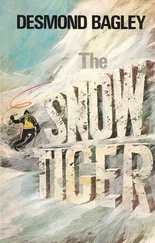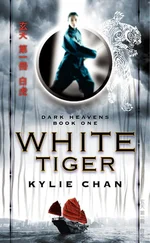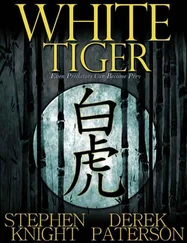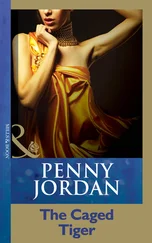These are the kinds of gods they have foisted on us, Mr. Jiabao. Understand, now, how hard it is for a man to win his freedom in India.
So much for the place. Now for the people. Your Excellency, I am proud to inform you that Laxmangarh is your typical Indian village paradise, adequately supplied with electricity, running water, and working telephones; and that the children of my village, raised on a nutritious diet of meat, eggs, vegetables, and lentils, will be found, when examined with tape measure and scales, to match up to the minimum height and weight standards set by the United Nations and other organizations whose treaties our prime minister has signed and whose forums he so regularly and pompously attends.
Ha!
Electricity poles-defunct.
Water tap-broken.
Children-too lean and short for their age, and with oversized heads from which vivid eyes shine, like the guilty conscience of the government of India.
Yes, a typical Indian village paradise, Mr. Jiabao. One day I'll have to come to China and see if your village paradises are any better.
Down the middle of the main road, families of hogs are sniffing through sewage-the upper body of each animal is dry, with long hairs that are matted together into spines; the lower half of the body is peat-black and glistening from sewage. Vivid red and brown flashes of feather-roosters fly up and down the roofs of the house. Past the hogs and roosters, you'll get to my house-if it still exists.
At the doorway to my house, you'll see the most important member of my family.
The water buffalo.
She was the fattest thing in our family; this was true in every house in the village. All day long, the women fed her and fed her fresh grass; feeding her was the main thing in their lives. All their hopes were concentrated in her fatness, sir. If she gave enough milk, the women could sell some of it, and there might be a little more money at the end of the day. She was a fat, glossy-skinned creature, with a vein the size of a boy's penis sticking out over her hairy snout, and long thick pearly spittle suspended from the edge of her mouth; she sat all day in her own stupendous crap. She was the dictator of our house!
Once you walk into the house, you will see-if any of them are still living, after what I did-the women. Working in the courtyard. My aunts and cousins and Kusum, my granny. One of them preparing the meal for the buffalo; one winnowing rice; one squatting down, looking through the scalp of another woman, squeezing the ticks to death between her fingers. Every now and then they stop their work, because it is time to fight. This means throwing metal vessels at one another, or pulling each other's hair, and then making up, by putting kisses on their palms and pressing them to the others' cheeks. At night they sleep together, their legs falling one over the other, like one creature, a millipede.
Men and boys sleep in another corner of the house.
Early morning. The roosters are going mad throughout the village. A hand stirs me awake…I shake my brother Kishan's legs off my tummy, move my cousin Pappu's palm out of my hair, and extricate myself from the sleepers.
"Come, Munna."
My father, calling for me from the door of the house.
I run behind him. We go out of the house and untie the water buffalo from her post. We are taking her for her morning bath-all the way to the pond beneath the Black Fort.
The Black Fort stands on the crest of a hill overlooking the village. People who have been to other countries have told me that this fort is as beautiful as anything seen in Europe. The Turks, or the Afghans, or the English, or whichever foreigners were then ruling India, must have built the fort centuries ago.
(For this land, India, has never been free. First the Muslims, then the British bossed us around. In 1947 the British left, but only a moron would think that we became free then.)
Now the foreigners have long abandoned the Black Fort, and a tribe of monkeys occupy it. No one else goes up, except for a goatherd taking his flock to graze there.
At sunrise, the pond around the base of the fort glows. Boulders from the walls of the fort have rolled down the hill and tumbled into the pond, where they lie, moist and half submerged in the muddy water, like the snoozing hippopotamuses that I would see, many years later, at the National Zoo at New Delhi. Lotuses and lilies float all over the pond, the water sparkles like silver, and the water buffalo wades, chewing on the leaves of the lilies, and setting off ripples that spread in big V's from her snout. The sun rises over the buffalo, and over my father, and over me, and over my world.
Sometimes, would you believe, I almost miss that place.
Now, back to the poster-
The suspect was last seen wearing blue checkered polyester shirt, orange polyester trousers, maroon color sandals…
"Maroon color" sandals-ugh. Only a policeman could have made up a detail like that. I flatly deny it.
"Blue checkered polyester shirt, orange polyester trousers"…er, well, I'd like to deny those too, but unfortunately they're correct. Those are the kinds of clothes, sir, that would appeal to a servant's eye. And I was still a servant on the morning of the day this poster was made. (By the evening I was free-and wearing different clothes!)
Now, there is one phrase in this poster that does annoy me-let me go back to it for a moment and fix it:
…son of Vikram Halwai rickshaw-puller…
Mr . Vikram Halwai, rickshaw-puller-thank you! My father was a poor man, but he was a man of honor and courage. I wouldn't be here, under this chandelier, if not for his guidance.
In the afternoons, I went from my school to the tea shop to see him. This tea shop was the central point of our village; the bus from Gaya stopped there at noon every day (never late by more than an hour or two) and the policemen would park their jeep here when they came to bugger someone in the village. A little before sunset, a man circled around the tea shop three times, ringing his bell loudly. A stiff cardboard-backed poster for a pornographic film was tied to the back of his cycle-what traditional Indian village is complete without its blue-movie theater, sir? A cinema across the river showed such films every night; two-and-a-half-hour fantasias with names like He Was a True Man, or We Opened Her Diary, or The Uncle Did It, featuring golden-haired women from America or lonely ladies from Hong Kong-or so I'm guessing, Mr. Premier, since it's not like I ever joined the other young men and went to see one of these films!
The rickshaw-pullers parked their vehicles in a line outside the tea shop, waiting for the bus to disgorge its passengers.
They were not allowed to sit on the plastic chairs put out for the customers; they had to crouch near the back, in that hunched-over, squatting posture common to servants in every part of India. My father never crouched-I remember that. He preferred to stand, no matter how long he had to wait and how uncomfortable it got for him. I would find him shirtless, usually alone, drinking tea and thinking.
Then there would be the honk of a car.
The hogs and stray dogs near the tea shop would scatter, and the smell of dust, and sand, and hog shit would blow into the shop. A white Ambassador car had stopped outside. My father put down his teacup and went out.
The door of the Ambassador opened: a man got out with a notebook. The regular customers of the tea shop could go on eating, but my father and the others gathered in a line.
The man with the notebook was not the Buffalo; he was the assistant.
There was another fellow inside the Ambassador; a stout one with a bald, brown, dimpled head, a serene expression on his face, and a shotgun on his lap.
Читать дальше












